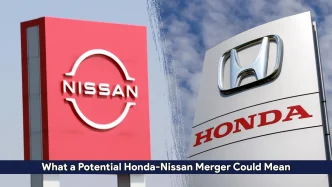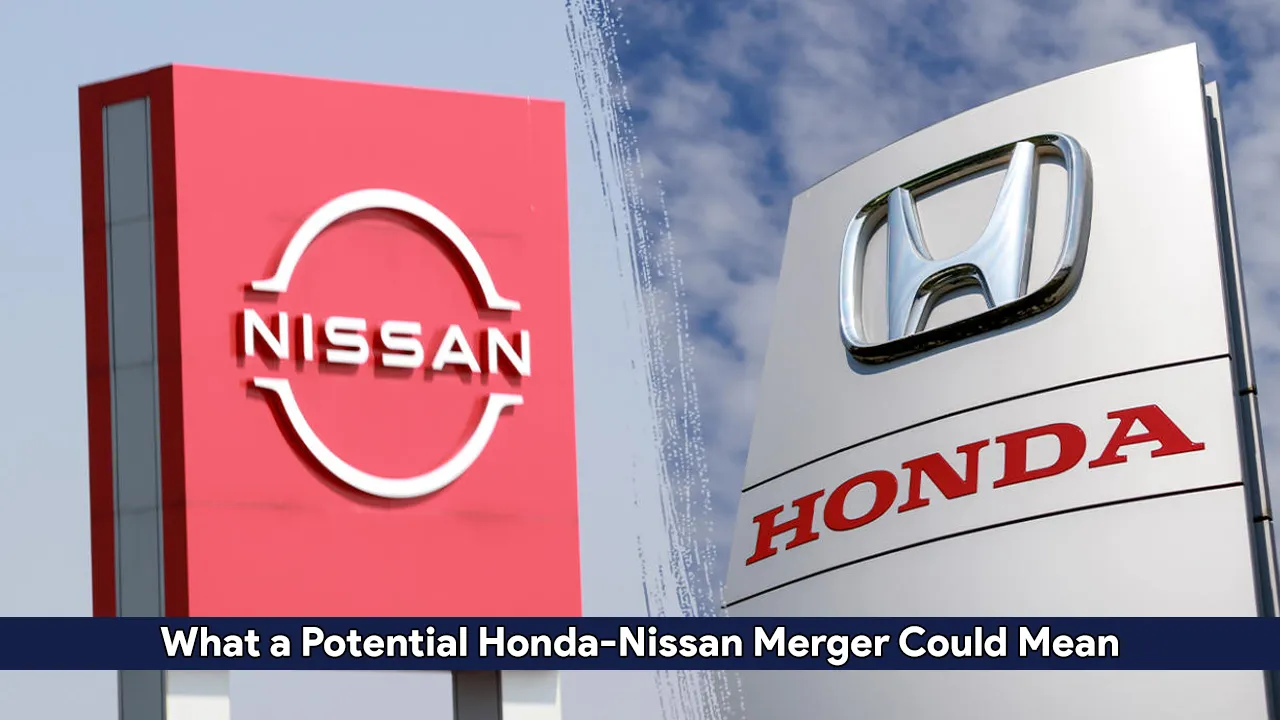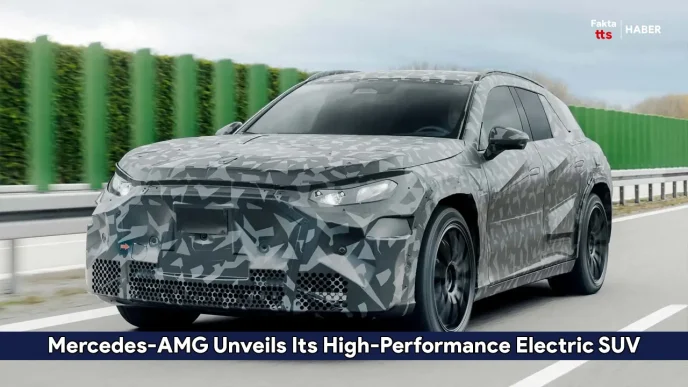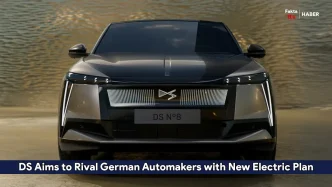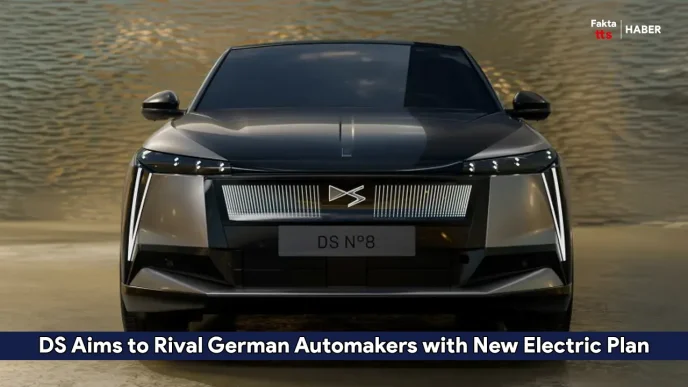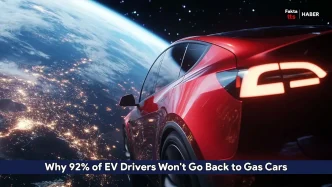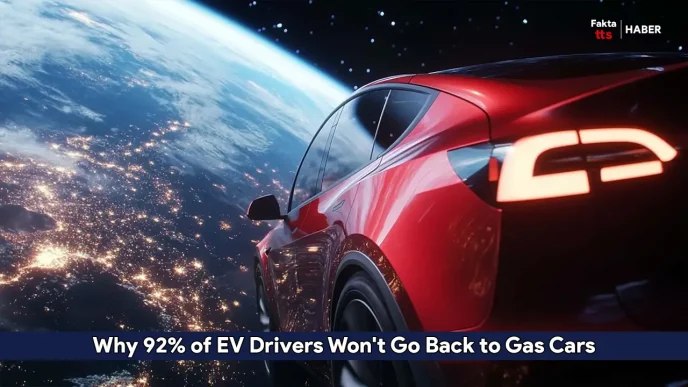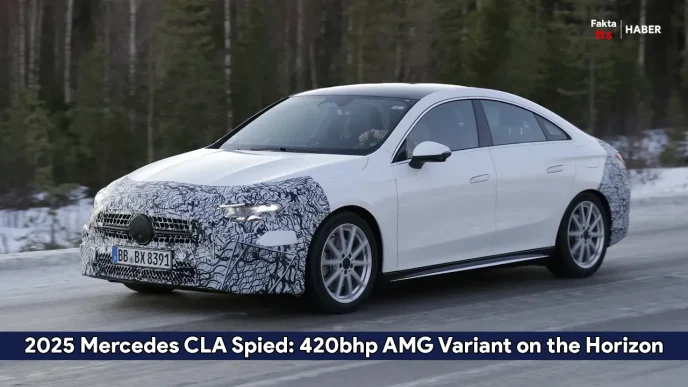The automotive world has been abuzz following reports that Honda Motor Co. and Nissan Motor Co. — Japan’s second and third-largest automakers respectively — are exploring the possibility of a merger. While neither company has officially confirmed the talks, speculation has surged regarding how such a move could reshape the industry, particularly as both manufacturers grapple with increasing competition in the electric vehicle (EV) market.
This potential collaboration was first reported by the Japanese financial newspaper Nikkei on Tuesday. According to the publication, the discussions come at a time when both Honda and Nissan face mounting pressure from global EV leaders like Tesla and the rapidly rising Chinese automaker BYD. In an era where electric vehicles are becoming central to the future of mobility, pooling resources may offer a strategic advantage for both brands.
Industry insiders, however, are not entirely surprised by these rumors. Brian Moody, executive editor at Autotrader and Kelley Blue Book, foresaw such developments roughly a year ago. He suggested that partnerships of this nature make sense because they allow companies to share resources, reduce costs, and manage the complexities of EV production more efficiently.
Pooling Resources to Navigate the EV Transition
Speaking to FOX Business, Moody highlighted the immense effort required for a major automaker to transition to electric vehicles. While smaller brands can pledge to go all-electric more easily, it is a far more ambitious and resource-intensive endeavor for larger firms.
“If a small brand says it is going to go all-electric, that is one thing, but for a large company to do so is a huge undertaking that takes vast amounts of research and development,” Moody explained.
The financial dynamics of both companies illustrate the potential challenges. Honda’s market capitalization stands at approximately 5.95 trillion yen ($38.8 billion), while Nissan’s valuation is considerably lower at 1.17 trillion yen ($7.6 billion). By collaborating, the companies may be able to streamline investments in technology and infrastructure, crucial steps to keep pace with the EV sector’s evolution.
Moody emphasized that while Honda has an array of innovative products, the company may benefit significantly from a strategic partner like Nissan.
“A company like Honda might not be able to do that on their own, but at the same time, Honda has some pretty compelling products, so I feel like they both bring something important to the table,” he said.
Addressing the High Costs of EVs
One key driver for a potential merger is the need to manage the financial risks associated with EV technology. While electric vehicles are gaining market share, growth has not been as rapid as many predicted.
Moody noted that merging resources could help avoid costly missteps as the industry navigates this transition.
“The big thing is pooling resources so that [they] don’t make a bad business decision for a technology, electric cars, that’s growing – but not growing as rapidly as people had maybe thought or hoped,” he added.
For consumers, a Honda-Nissan merger could have tangible benefits. One significant possibility is the production of more affordable electric vehicles, addressing a common complaint that new cars, particularly EVs, remain out of reach for many buyers.
“I could even see a merger or a partnership like this resulting in a low-cost sub-brand,” Moody suggested. “Because that’s what we’re hearing, is that a lot of people, a lot of consumers, are saying, ‘You know, new cars are just too expensive. I can’t buy a new car.'”
This potential sub-brand could deliver electric vehicles at a lower price point, making EV ownership accessible to a broader demographic.
The Competitive Landscape and Strategic Implications
A merger between Honda and Nissan would represent a significant realignment within the Japanese automotive industry, currently dominated by Toyota Motor Corp.. As the industry shifts toward electrification and sustainable technologies, automakers are increasingly seeking partnerships to maintain competitiveness.
Nissan, which previously formed an alliance with Renault and Mitsubishi, has faced financial struggles and a challenging global market. The company’s announcement to cut 9,000 jobs and reduce CEO pay highlights its ongoing difficulties. A strategic partnership with Honda could offer new opportunities for growth and stability.
For Honda, aligning with Nissan might provide the additional infrastructure and technological assets needed to scale EV production more effectively. Honda recently recalled nearly 206,000 vehicles due to potential fuel leaks, underscoring the need for improved efficiency and investment in future technologies.
Challenges and Skepticism
Despite the potential advantages, merging two major automakers is not without challenges. Cultural differences, management structures, and brand identities can complicate such deals. Additionally, both companies must address their respective financial situations and strategic goals before finalizing any agreement.
Analysts remain cautious about the feasibility of a full-scale merger but acknowledge the potential for joint ventures or cooperative projects focused on electric vehicles, battery development, and autonomous driving technologies.
Conclusion: The Road Ahead
While the reported merger talks between Honda and Nissan remain speculative, they highlight a broader trend in the auto industry: collaboration as a survival strategy in the face of technological change. Whether a merger materializes or not, the potential for more affordable electric vehicles and shared innovation could reshape the market, offering consumers new options and driving further advancements in the EV sector.
As the industry continues to evolve, partnerships like this one may become essential for automakers to remain competitive in a rapidly changing world.
Why are Honda and Nissan considering a potential merger?
Honda and Nissan are reportedly considering a merger to better compete in the global electric vehicle (EV) market. By pooling their resources, they can reduce costs associated with research, development, and production. This strategy could help both companies transition more efficiently to EV manufacturing, which requires significant investment and infrastructure.
What would a Honda-Nissan merger mean for consumers?
A merger could lead to the development of more affordable electric vehicles. Consumers often find EVs too expensive, and a collaboration between Honda and Nissan could result in low-cost sub-brands, making electric cars accessible to a broader audience.
How are Honda and Nissan currently performing financially?
Honda’s market capitalization is around 5.95 trillion yen ($38.8 billion), while Nissan’s stands at 1.17 trillion yen ($7.6 billion). Nissan has faced financial challenges in recent years, including job cuts and executive pay reductions. A merger could help stabilize both companies by sharing financial burdens and resources.
How would a merger help Honda and Nissan in the EV market?
A merger would allow Honda and Nissan to share the costs and risks of developing electric vehicle technology. This collaboration could accelerate innovation, improve efficiency, and allow both companies to scale up their EV production more effectively.
What challenges could a Honda-Nissan merger face?
Challenges include potential cultural and management differences, brand identity concerns, and the complexities of integrating two large companies. Both firms would need to align their strategic goals and overcome logistical hurdles to make a merger successful.
Are there alternatives to a full merger for Honda and Nissan?
Yes, instead of a complete merger, Honda and Nissan could form strategic partnerships or joint ventures. These arrangements would allow them to collaborate on specific projects, such as battery development or autonomous driving technology, without fully merging their operations.
How could a merger affect competition in the auto industry?
A Honda-Nissan merger could create a stronger competitor against global auto giants like Toyota, Tesla, and BYD. This consolidation might drive further innovation and potentially lead other automakers to consider similar partnerships to remain competitive.
What is the significance of electric vehicle production for Honda and Nissan?
As the auto industry shifts toward electrification, EV production is crucial for staying relevant and competitive. Both Honda and Nissan need to ramp up their EV offerings to meet growing demand and comply with environmental regulations. A merger could provide the resources needed to achieve these goals efficiently.
Could a merger result in job cuts or factory closures?
While mergers often aim to streamline operations, they can also lead to redundancies. In some cases, this could mean job cuts or factory closures. However, the exact impact would depend on the specifics of any potential deal and how the companies plan to integrate their operations.
